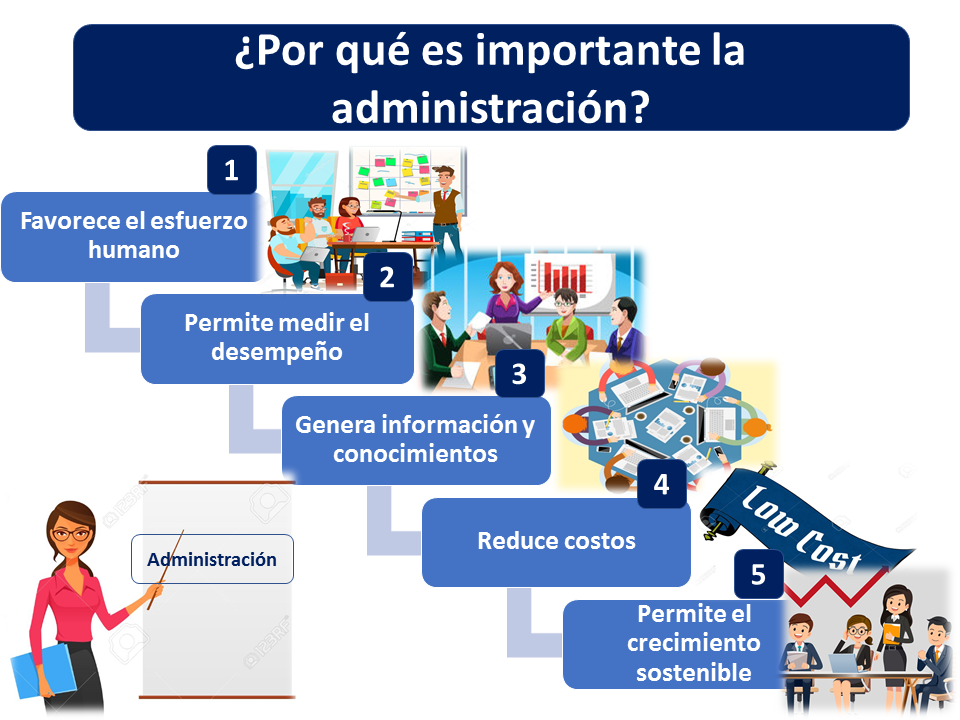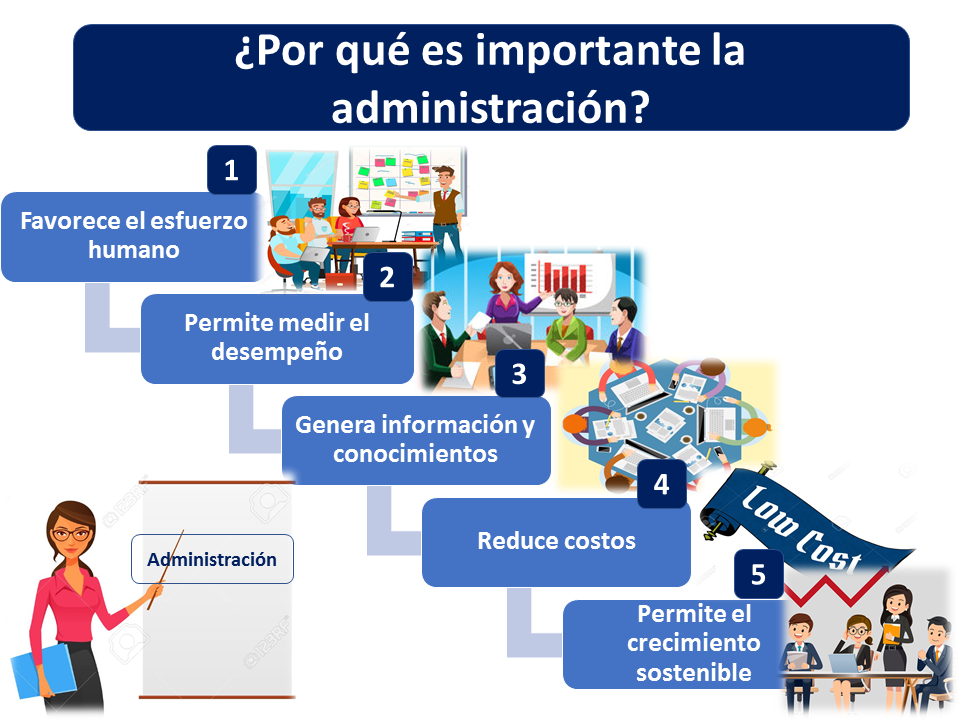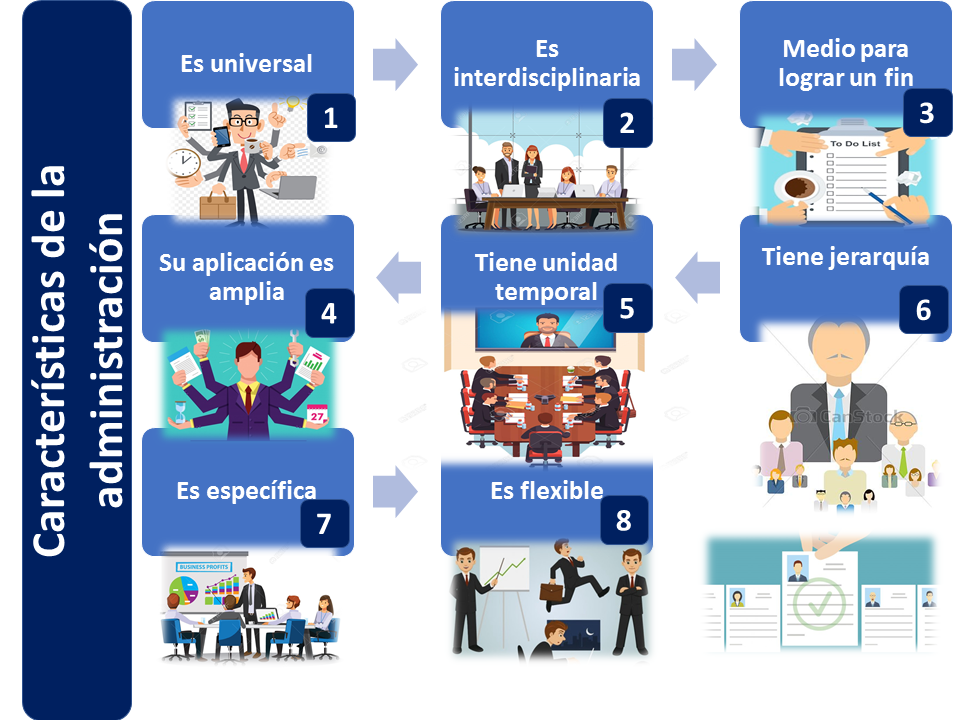Administration

Administration is the process that seeks through planning, organization, execution and control of resources to give them a more efficient use to achieve the objectives of an institution
In reality, for the administration to achieve its objectives, it has to make use in a coordinated way of the human, intellectual, material, technological and financial resources that are possessed within the group. The key person in the administration is the administrator.
In addition, the task of the administration supposes to achieve the objectives working in subordination of someone else. So you need a hierarchical relationship where you work under the command of another.
Likewise, the administration aims to obtain more efficient results especially in the management of the resources that are possessed, for that an effective management activity is needed that involves all the activities and the collaborative work of other people, because only in that way the expected objectives can be achieved.
In this sense, the administration can be applied in formal and informal institutions, formal institutions are those that are governed by rules and laws that are written so that they can function as the case of a state or a company.
While informal institutions have rules, but they are not written as in the case of a family where administration can also be applied, because resources must still be administered to meet its objectives.
Why is management important?
Administration allows you to use techniques and tools that make better use of resources. What enables both the stability, maintenance and growth of social groups or institutions.
The most important benefits or advantages that we can obtain with the use of the administration are the following:
1. It favors human effort
Management enables all human tasks to be done effectively. Since with the administration the work becomes simpler, by establishing certain methods, principles and procedures, the work is carried out quickly and effectively. This allows you to focus on the objectives of each task and increase effectiveness.
It helps to maintain a balance between effectiveness and efficiency. Above all, understanding that efficiency is to be able to achieve the proposed objectives and efficiency is to achieve the objectives using the least amount of resources possible.
Of course,
2. It allows to measure the performance of the institution
Apart from, the administration helps to have performance indicators and allows them to be measured quantitatively, which provides institutions with a set of variables that are objective and measurable, which become simple and reliable data that can be used to monitor how the institution performs.
3. Generates important information and knowledge
Relevant information and knowledge is also generated on the correct way to use the institution's human, intellectual, material, technological and financial resources, so that they are used to the maximum.
Both the productivity and the efficiency of any group are directly related to the application of good management.
4. Reduce costs
Consequently, if resources are used efficiently and their use is maximized, costs tend to decrease, which favors the performance of the organization.
5. Enables sustainable growth
Then, the increase in efficiency, the correct achievement of objectives and goals proposed by an institution, gives them the possibility of continuing to grow in a sustainable way over time.

Administration features
The most important characteristics of the administration are:
1. Universality
For its part, universality is related to the fact that the administration can be used in any type of institution or social group. It can be a formal, informal, private, public institution, among others. This, since they all want to achieve their goals using resources correctly.
2. It is interdisciplinary
Since, the administration can be related to any science that uses methods, principles and processes that make that the resources are used efficiently.
3. It is a means to an end
Then, the administration is eminently practical, that means that it is an instrument that is used to achieve a specific purpose, that is, each organization that applies it seeks to achieve its own objectives.
4. Has hierarchy
Therefore, there must be a hierarchical unit for it to function, because there must be a boss who is in command and a chain of subordinates, to chain the efforts of all towards the achievement of the common goal.
5. Has temporary unit
Since, this characteristic establishes that the stages of the administrative process are not carried out in isolation, but rather operate simultaneously because it is a dynamic process.
6. Its application is wide
So, the administration can operate at all levels of the organization, in which there is hierarchy, that is why it is applied by both a housewife and the president of a company or even the president of a country.
7. Is specific
We must consider that the administration is related to and assisted by many other sciences and techniques, but it cannot be confused with other areas because it has a specific character.
8. It is flexible
It turns out that its flexibility is based on the fact that it can be applied in any type of organization regardless of the field in which it is dedicated and they adapt to its needs, so it cannot be rigid.

Finally, we can establish that the application of administration is necessary for the operation of any group or social organization, from the simplest to the most complex. In this sense, it should be noted that it is more important in the performance of larger organizations.
The administration generates better human relations within the group, it also favors the optimization in the use of the organization's resources, so that ultimately greater well-being is generated for everyone.
Leave a Reply